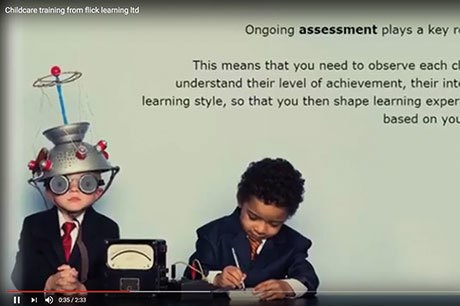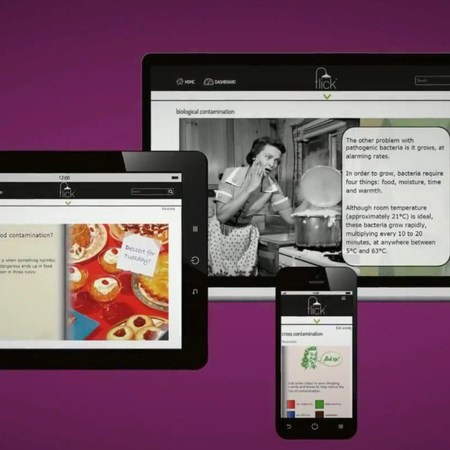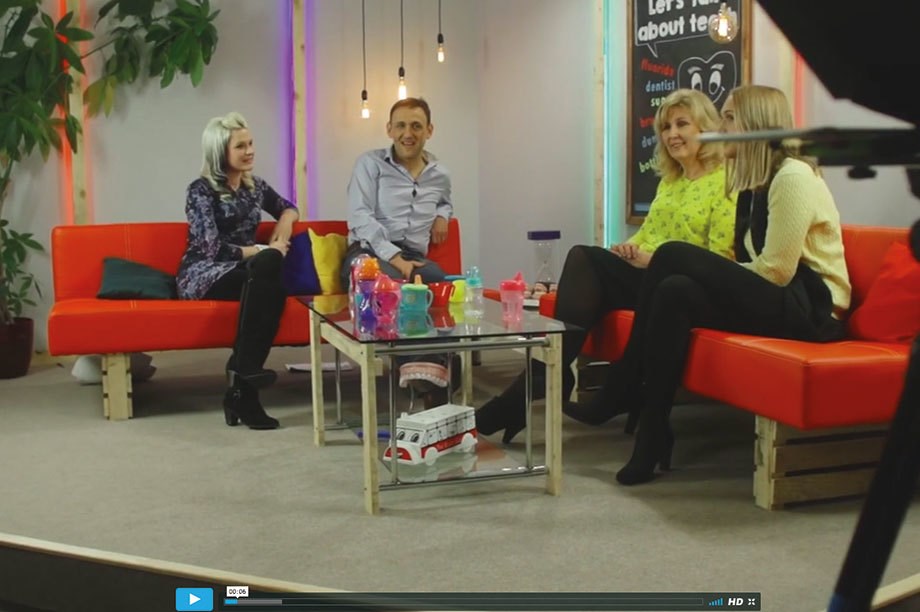Training Today: Continuing Professional Development - Screen learning
Nicole Weinstein
Monday, July 10, 2017
In the search for high-quality and reasonably priced training for early years practitioners, Nicole Weinstein looks at the innovative solutions on offer from three online training companies

Online could be the future of training. Globally, the e-learning market was worth $166.5bn in 2015, and is predicted to rise to $255bn this year, according to the World Economic Forum. In 2012, four years after the start of the financial crash, cost was the main barrier to accessing CPD, according to 72 per cent of respondents to Professor Cathy Nutbrown’s call for evidence in her report, Foundations for Quality. As local authorities look set to continue not to provide CPD to the pre-crash levels the sector enjoyed, nurseries are being forced to find creative ways to access it. The creation of a one-stop shop bringing together effective online CPD is a Government solution to this – appearing as an action point in the Early Years Workforce Strategy.
Online training offers practitioners the benefit of accessing learning in their own time, at their own pace, and which can be repeated over again. It is traditionally relatively cheap to make and thus to take. Unsurprisingly, a plethora of courses have sprung up, making it hard for a team to identify what they could really benefit from. As a result, organisations such as the Pre-school Learning Alliance are now offering a package to assess what a setting would find most relevant. Through its SMARTpd initiative, the relevant (in-house) training courses – online modules, webinars, publications and face-to-face workshops – are pulled together into a package following an initial questionnaire that is filled in online and a telephone consultation with a training advisor.
However, online CPD is not a substitute for having an inspirational teacher. While online learning may be helpful for fact-based knowledge, explains June O’Sullivan MBE, chief executive of London Early Years Foundation (LEYF), learning that requires ‘consideration, contemplation and reflection’ in order to understand how it can be applied in different contexts is ‘much better face-to-face’.
She continues, ‘It is the shared conversations and discussions that best provoke more thinking. The main challenge for staff is how to embed new learning consistently, and this is better helped by face-to-face pedagogical provocation demonstration and monitoring.’
Finding good-quality online training, along with devising creative in-house and well-chosen face-to-face alternatives, is one cost-effective solution to providing staff with the CPD they need to improve. Here are some options:
COURSE NAME: Developing an effective key person approach.
PREMISE: Bite-sized video clips and footage delivered by an online presenter which can be used singly or in a group.
COST: £69 for annual rental.
FORMAT: The key person course is Siren’s first online offering, produced after increased demand to stream and download existing DVD footage and requests from training companies to develop courses using its video clips.
It comes in two sections: section one links with attachment theory, and section two addresses the role of the key person. The course was designed by early years trainer and writer Anne O’Connor and is delivered by Kate Read, early years consultant and EYFS trainer. It is aimed primarily at nursery practitioners and can be used by managers to complement in-house team training or CPD – or it can be used on an individual basis.
The user can start and stop at their own leisure. They can print out task sheets and guides, watch Ms Read as she introduces each section, and observe clips, reflect and discuss.
TRIED AND TESTED: THE MOHAIR CENTRE, LEWES
‘We are a Forest School and farm nursery and I also provide training for local nurseries in Sussex,’ explains owner and part-time early years lecturer at Brighton University, Jacky Webb. ‘I’ve been using Siren Films’ documentaries for years and incorporating their clips into my in-house training; however, not being technology-savvy, I struggled to find the right segments of the film to accompany my PowerPoint presentations – and it was often time-consuming.
‘Although the content of the films are exemplary, they are often quite long and, as a manager and a training provider, I am aware of the need to deliver bite-sized chunks of information that is easily digestible. These online training courses do just that.
‘My staff are used to receiving bespoke training, where I adapt things as I go along if it’s not working. Here, they are guided through the course content with a trainer. It’s done in a very interactive manner, allowing practitioners time to reflect on the observation clips and discuss things in groups.
‘For a busy nursery owner, there’s great value in having access to an online course where you can just press play and get started. There is even greater value in knowing that you are investing in an online course where the content is of a high quality. There’s nothing worse than sending your practitioners out for a day’s training and incurring all the associated costs only for them to come back and say that they’ve learnt nothing and it was rubbish.
‘I delivered each section of this course to my 30 staff in two two-and-a-half-hour staff meetings. No extra costs are incurred and no weekend training is needed. For settings that don’t have in-house trainers or managers with the confidence to stand up and deliver training, this is a great solution. In reality, they would just need an overhead projector; however, equally, the course can be tailored to a setting’s individual needs, which is what I did when I added lots of scenarios involving outdoor learning.
‘We have a diverse range of staff, from newcomers to highly qualifieds who have been with us for years. It was a great teambuilding exercise and it gave everyone a chance to look at best practice in the setting and share it with the less-experienced members. Most of all, it gave us the opportunity to promote consistency. It’s much more effective than cascading training because, although the intention is there, it rarely happens in the way that it should.
COURSE NAME: The EYFS Made Simple, plus courses in safeguarding, health and safety, and handling information.
PREMISE: Bite-size information delivered using high-end visuals, including animation; plus narration, music, sound effects and games – all designed to help the learner to retain the information more easily.
COST: Single users, £10 a month; up to 30 users, £60 a month or £350 a year. All subscriptions give users access to all 41 courses.
FORMAT: The EYFS Made Simple has a three-topic introduction covering the seven learning and development requirements of the EYFS, measuring and assessing progress and safeguarding and welfare.
You can choose cartoon icons to help you remember the Prime and Specific areas of learning. Once a section has been completed, points are awarded to mark your progress against your colleagues or other users on a leader board, and you can also get badges for completing a suite of courses. Practitioners should go away knowing how to do key parts of the job.

TRIED AND TESTED: JUST CHILDCARE
With the exception of in-house first-aid courses, this north west-based chain of 36 nurseries uses Flick Learning for all its ongoing CPD. Every member of staff has a log-in, and they are assigned online training programmes tailored to their needs.
Sam Smith, deputy manager at Just Childcare Ashmore Private Day Nursery in Bradford, says, ‘I like the fact that you don’t have to just sit down and read lots of text. The computer “speaks to you” by reading out the text on the screen – and it’s very interactive. You can turn the pages like a book, but there are only a few short paragraphs on each page. As you go through, there are quizzes to remind you what you’ve read, and it’s broken down into different sections.
‘You don’t have to sit and do a whole thing in one go. This is great for practitioners who have children and find it easier to complete sections when their children have gone to bed. So far, I’ve done food hygiene, fire safety and child protection. There are lots of illustrations. For example, for the food hygiene certificate, the theme is a 1950s kitchen, which is quite fun.
 ‘The site is very user-friendly and easy to navigate. The way that it’s designed helps the information to sink in. When we first got our log-ins, the manager asked us to complete the food hygiene certificate and gave us the deadline of a month, and it created quite a buzz and a bit of healthy competition as practitioners talked about what percentage of the course they had completed.
‘The site is very user-friendly and easy to navigate. The way that it’s designed helps the information to sink in. When we first got our log-ins, the manager asked us to complete the food hygiene certificate and gave us the deadline of a month, and it created quite a buzz and a bit of healthy competition as practitioners talked about what percentage of the course they had completed.
‘So far, we’ve all done the training individually and printed out the certificates to show that we have passed it. At the end of the course there is an assessment, which is usually a multiple-choice questionnaire, but to get to it you have to complete all the sections, which remain unlocked until completed. My manager is soon to do the Prevent course and then bring her findings to a staff meeting to discuss this, and then we will go away and complete the course ourselves.’
COURSE NAME: Let’s Talk About Teeth.
PREMISE: Show rather than tell via an ‘edutainment’ chat show format, featuring leading professionals, parents and practitioners as they discuss the issues surrounding oral health.
COST: £25 for a single course for one practitioner; £175 for a full team of up to 25 practitioners and 50 parents. It can also be used by local authorities for cascading to practitioners and parents.
FORMAT: The programme contains three modules covering birth to two years; twos; and three to six years. Each module stands alone, so if you are a practitioner in the baby room you can just watch the first one. Two 18-minute films within each module are delivered in a chat-show-style format with a presenter and experts.
In the birth to two module, Dr Peter Day, consultant in paediatric dentistry at Leeds Dental Institute, has a discussion with NHS health visitor Ruth Topping, and a mum-of-two, which looks at the best cups to use when weaning and tips on how to prevent tooth decay in a child’s earliest days.
During the discussion there are video clips of children with Dr Day at his dental practice, and the cameras capture a child’s first experiences using a cup.

TRIED AND TESTED: NUNTHORPE NURSERIES GROUP, TEESSIDE
‘From babies onwards, parents can do lots to support their children in looking after their teeth, and this training programme has inspired us as an early years workforce to help prevent tooth decay,’ explains group nursery manager Christine Pendergast. ‘The course includes advice about breastfeeding; ditching the dummy; weaning; finding a dentist; nutrition; how to brush a child’s teeth; and information on the development norms for teeth from birth to 30 months – as well as how to promote supervised tooth-brushing in early years settings.
‘We’ve used Soap Media’s online training courses in the past and they are very well received by staff. The videos are easy-to-follow for all staff and the training also gives ideas and suggestions along with very useful resources and handouts to share with parents. There’s a quiz at the end of each programme which re-enforces the learning, and the feedback from staff is they like the fact that it’s interactive; the presenter is engaging and the discussions with the health professionals and parents are informative and help you retain the information.
‘The camera flicks into real-life scenarios. The presenter even goes out onto the street to canvass the opinion of passers-by about the importance of baby teeth. It’s a really interesting way to learn about a new topic, and the timing – 18 minutes per video – means that the course can easily be delivered in a staff meeting.
‘There are lots of links to other websites so that staff can do more in-depth research, and there are ideas for fun teeth-related activities to do in the setting or at home. We already have good links with oral health professionals from the local authorities.
‘One of our nurseries is doing a drop-in tooth-brushing workshop for parents, where handouts from the online course will be given out to support parents.’
The trailer can be found at: https://vimeo.com/205023142
download the pdf




